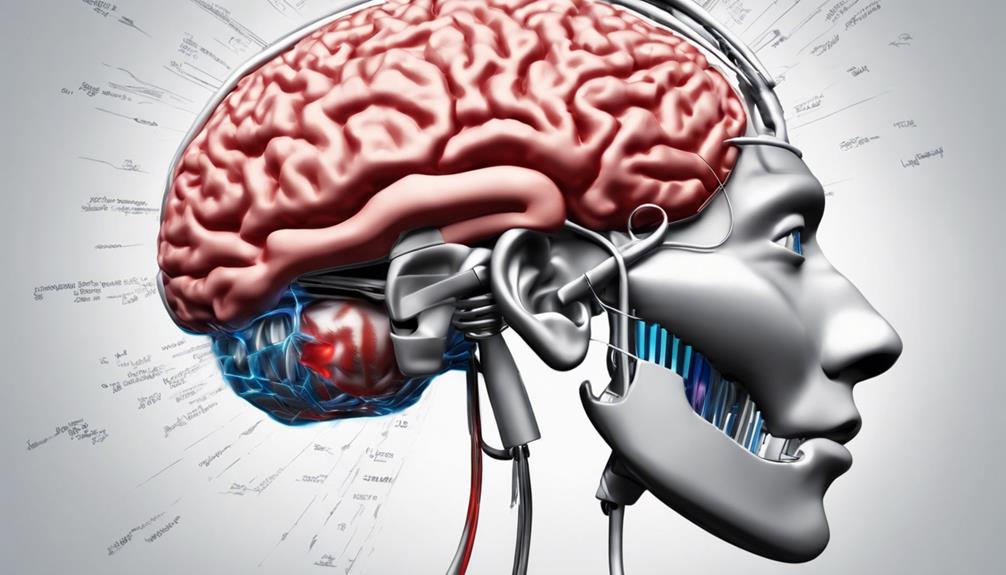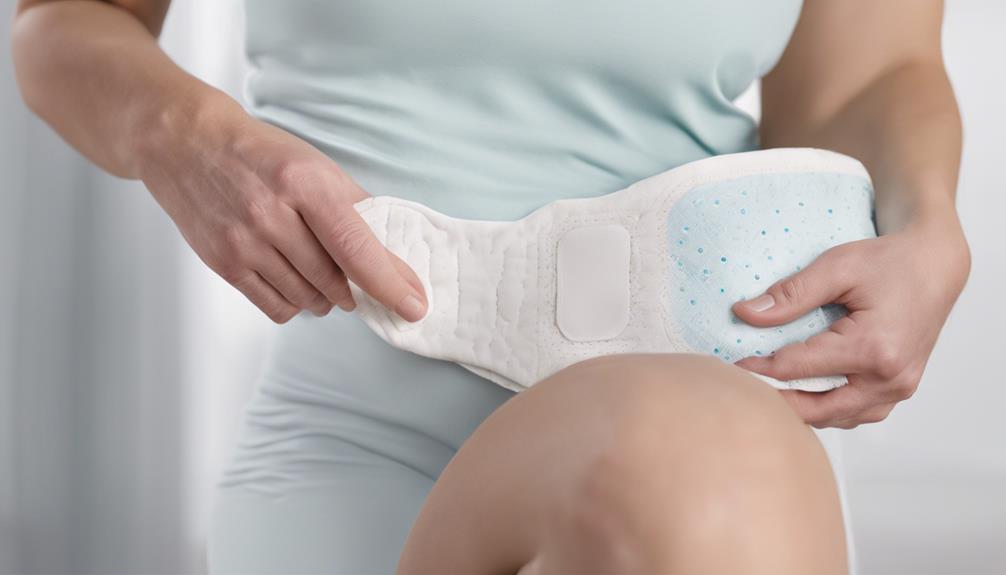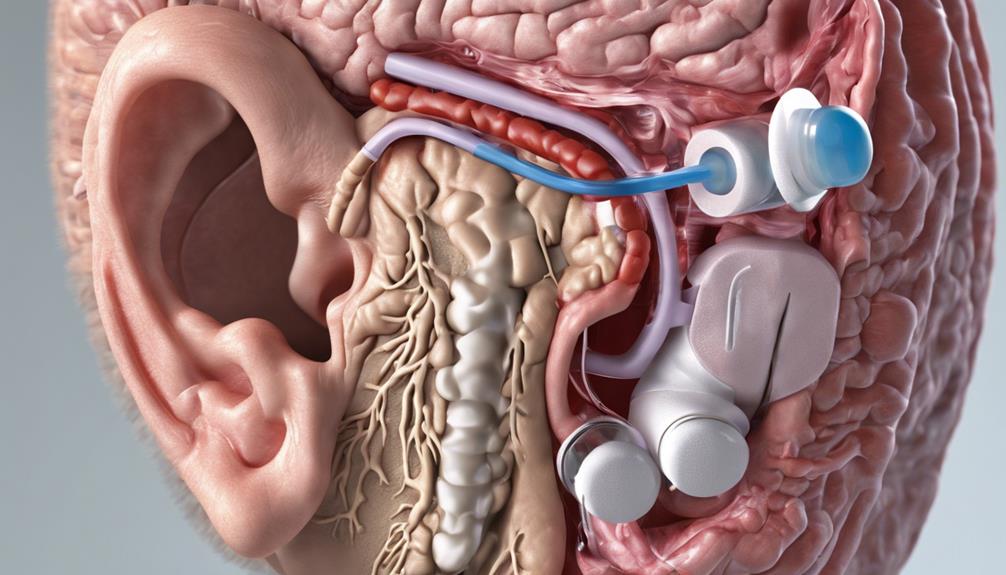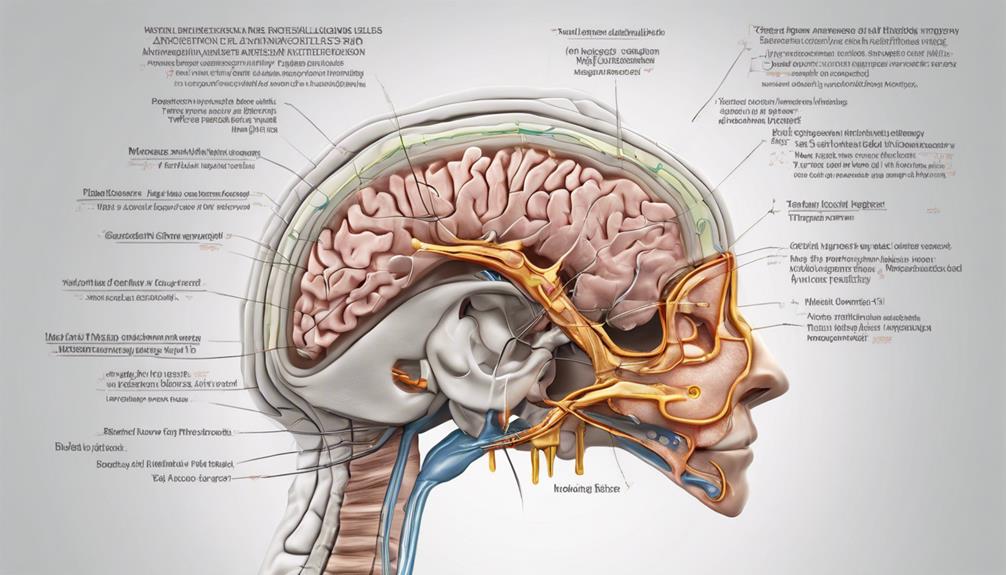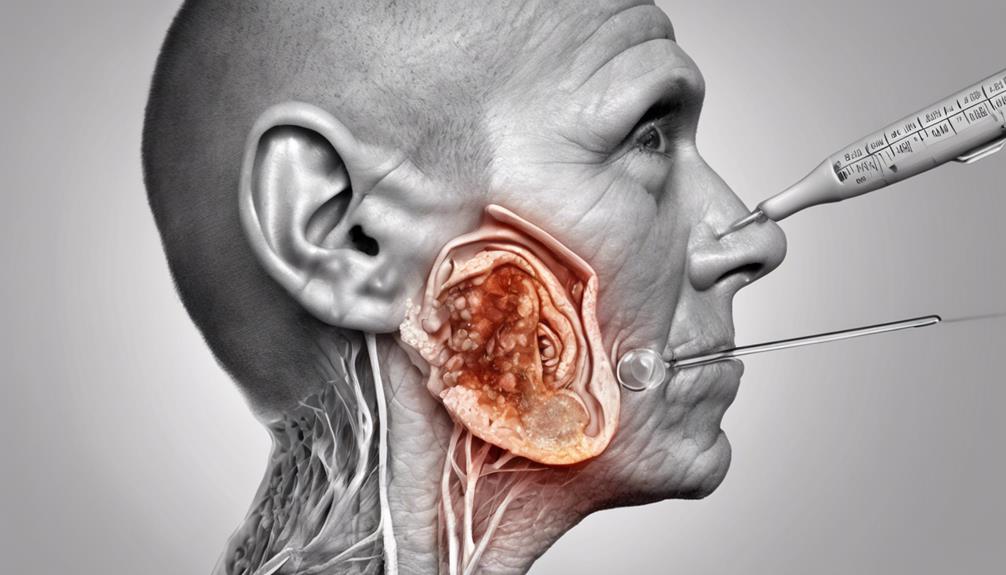Imagine a beautiful orchestra where each instrument plays a vital role in creating a melodious tune. Now, picture the impact of a single out-of-tune note disrupting the harmony of the symphony.
In a similar manner, concussions have been found to disrupt the intricate balance of our auditory system, potentially leading to hearing loss. As we explore the nuanced connection between head injuries and changes in hearing function, we unveil a complex interplay deserving of closer examination.
The intricate mechanisms at play beckon us to unravel the mysteries behind this intriguing correlation, offering insights that may reshape our understanding of brain health and sensory perception.
Key Takeaways
- Concussions damage inner ear structures, leading to hearing difficulties.
- Disruptions in central auditory pathways affect sound signal interpretation.
- Recognizing signs of hearing loss promptly and seeking professional care is crucial.
- Damage to the cochlea and cochlear nerve can result in hearing loss.
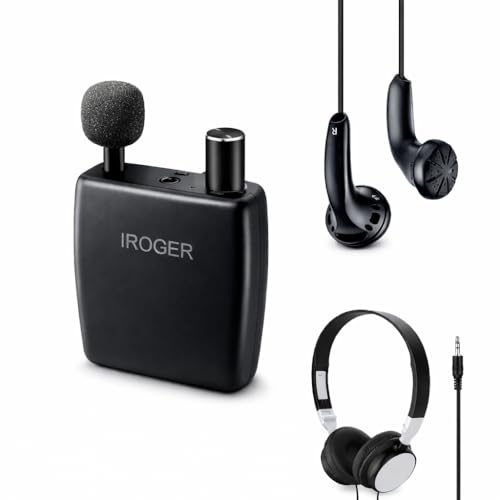
IROGER Hearing Amplifier for Seniors, Personal Sound Amplifier, Smart Auto-Gain, Directional Microphone, Rechargeable with 120-Hour Battery, Headphones & Earbuds Included
Smart Auto-Gain Control – Enjoy crystal-clear sound at all times. iRoger automatically balances audio levels to enhance voices...
As an affiliate, we earn on qualifying purchases.
Understanding Concussions and Hearing Loss
When examining the relationship between concussions and hearing loss, it becomes evident that understanding the intricate mechanisms at play is paramount in grasping the implications of such injuries on auditory function.
Head injuries, like concussions, can cause hearing loss through various means. One way this occurs is by damaging the inner ear structures, such as sensory cells and cochlear nerves. These damages can lead to difficulties in processing auditory information and experiencing symptoms like tinnitus post-concussion.
It's crucial to seek immediate medical attention for any hearing-related issues following a head injury, as untreated hearing loss can further impact balance, coordination, and increase the risk of falls.
Therefore, recognizing the signs of hearing loss after a concussion and promptly addressing them through professional medical care is essential to mitigate the potential long-term consequences on auditory function.

Joanbro Personal Sound Amplifier for Seniors, Voice Enhancement Devices, Pocket Sound Amplifiers for Elderly People, Adults, 50dB Gain, with Headphones & Earbud, 3 Types Mics, 3 Tone, Volume Control
SUPERIOR PERSONAL SOUND AMPLIFIER: Applying noise cancelling, automatic gain control and advanced amplifying circuit, this sound amplifier device...
As an affiliate, we earn on qualifying purchases.
Mechanisms of Hearing Damage in Concussions
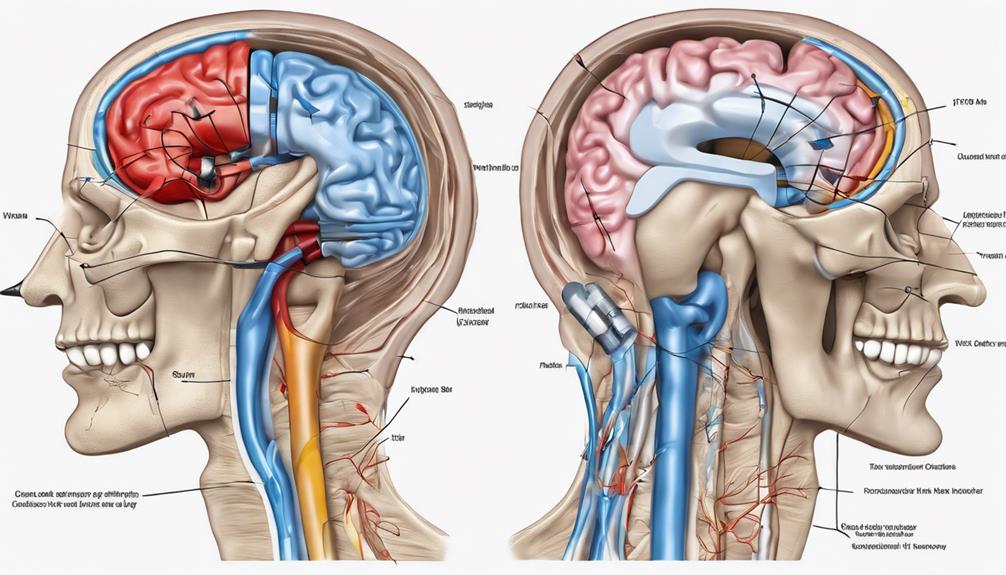
Upon sustaining a concussion, the intricate mechanisms through which hearing damage can occur encompass various pathways, including damage to middle ear bones, inner ear fractures, and injuries to the brain's sound processing regions. Head injuries can lead to sensory damage within the auditory system, affecting how sound is transmitted from the outer ear to the brain for processing.
In concussions, disruptions to the delicate structures of the inner ear, such as the cochlea, can result in hearing loss. Additionally, damage to the central auditory pathways and the cochlear nerve can impede the brain's ability to interpret sound signals correctly, leading to hearing difficulties post-concussion. These disruptions can manifest as challenges in processing auditory information, trouble locating the source of sounds, and even symptoms like vertigo.
Understanding the impact of concussions on the auditory system is crucial in recognizing and managing potential hearing issues that may arise following head trauma.

Neosonic Rechargeable Hearing Amplifier to Aid TV Watching and Conversation, Wireless Neckband Headphones for Seniors & Adults, Remote Microphone Noise Cancelling - NW10 Pro
BACKGROUND NOISE REDUCTION - Equipped with a wireless external microphone, the NW10 Pro allows you to place the...
As an affiliate, we earn on qualifying purchases.
Symptoms of Hearing Loss Post-Concussion
Experiencing hearing loss post-concussion can present as difficulties in processing auditory information, particularly in noisy environments. Individuals may also struggle with accurately locating sound sources, leading to challenges in everyday activities. Loss of balance and coordination can accompany hearing loss after a head injury, impacting sensory and motor responses. Symptoms such as vertigo, nausea, tinnitus, and hyperacusis may indicate underlying hearing issues following a concussion. These symptoms can significantly affect an individual's quality of life and ability to function optimally.
| Hearing Loss Symptoms Post-Concussion | |||
|---|---|---|---|
| Difficulty processing auditory information | Trouble locating sound sources accurately | Loss of balance and coordination | |
| Vertigo | Nausea | Tinnitus | Hyperacusis |

IROGER Hearing Amplifier Rechargeable Hearing Device with Standard Headphone Personal Sound Amplifier PSAP for Ears,Seniors,Directional Microphone
Auto Gain Control for Clearer Sound-- Automatically adjusts volume levels to deliver balanced, high-quality sound amplification. Ideal for...
As an affiliate, we earn on qualifying purchases.
Diagnosis and Treatment Options for Hearing Loss

Diagnostic assessments are essential for determining the extent of hearing loss post-concussion and guiding treatment strategies. Audiologists use tests like audiograms, tympanometry, and otoacoustic emissions testing to assess the impact accurately. These evaluations pinpoint affected frequencies, enabling tailored treatment plans.
Treatment for hearing loss after a concussion varies based on severity. Immediate medical attention is crucial to prevent long-term damage. Treatment ranges from monitoring and rest to using hearing aids or other devices. Audiologists, specializing in concussion-related hearing loss, provide personalized care plans. Rehabilitation and counseling services may also be recommended to support individuals dealing with hearing difficulties after a concussion.
Preventing Hearing Loss After a Concussion
To mitigate the risk of hearing loss following a concussion, proactive measures focused on early intervention and careful monitoring are crucial in preserving auditory health. Seeking immediate evaluation by an audiologist post-concussion can significantly reduce the long-term risks of hearing impairment.
Addressing any ringing in the ears promptly after a concussion through medical attention can prevent permanent hearing damage. Timely intervention and effective management of concussion-related symptoms play a vital role in preventing potential hearing loss.
Monitoring not only the typical concussion symptoms but also balance, coordination, and hearing post-concussion can help identify and address any potential hearing issues early on. Being aware of the symptoms associated with potential hearing loss following a concussion is essential as it can facilitate early preventive measures, ultimately safeguarding against any permanent auditory damage.
Frequently Asked Questions
Can Concussions Cause Hearing Loss?
Yes, concussions can cause hearing loss. Various mechanisms, including damage to middle ear bones and inner ear fractures, contribute to this issue. Post-concussion hearing loss is often overlooked but requires immediate attention.
Symptoms may include difficulty processing sound and vertigo. Seeking evaluation from an audiologist is crucial for diagnosis and support.
Immediate medical attention is essential post-concussion to address potential hearing damage effectively.
How Might a Concussion Affect Hearing and Balance?
When a concussion occurs, it can impact our hearing and balance by causing damage to the inner ear structures. This damage can lead to difficulties in processing sound signals correctly and affect our equilibrium, resulting in symptoms like dizziness and vertigo.
Such disruptions in our auditory and balance systems can significantly impact our daily activities and overall quality of life post-concussion. It's crucial to address these issues promptly for proper recovery.
Can I Read a Book After Concussion?
Yes, we can read a book after a concussion, but it's crucial to monitor for any symptoms worsening. Short reading sessions with breaks can help prevent discomfort.
If headaches, dizziness, or visual disturbances increase, it's advisable to rest and seek medical advice. Limiting screen time and using good lighting are also beneficial.
Prioritizing symptom management and consulting healthcare providers if needed is key to a safe recovery process.
Can Blunt Force Trauma Cause Hearing Loss?
Yes, blunt force trauma can cause hearing loss. When the delicate structures of the ear are damaged by a powerful impact, it can lead to ruptured eardrums, damage to the ossicles, or harm to the inner ear.
This disruption in the auditory system can result in varying levels of hearing impairment, which may be temporary or permanent depending on the severity of the trauma. Immediate medical evaluation is crucial for assessing and addressing potential hearing issues.
Conclusion
In conclusion, it's crucial to recognize the potential link between concussions and hearing loss, as the impact can be far-reaching.
By seeking timely medical attention and collaborating with audiologists for diagnosis and treatment, individuals can navigate the complexities of post-concussion hearing issues with ease.
Remember, the journey to recovery may seem daunting, but with the right support and expertise, the possibilities for improvement are as vast as the ocean.

